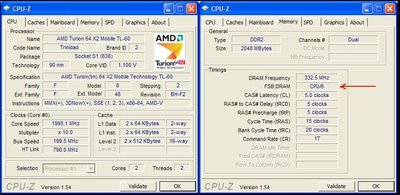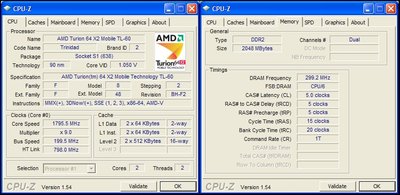Baoran wrote:I always thought that ram speed only changes when you change FSB, but is it normal that if you just raise multiplier by 0.5x in athlon64 system without changing FSB the ram speed goes up by 100Mb/s? I am just looking at what memtest86 shows at top of the screen when booting it from floppy disk.
Athlon64.. specially on AM2 motherboards used core frequency to determine RAM speed, when speed can't match a JEDEC speed.. they used the next divider so you could end up with ram speeds slower than specified. The match between core speed and memory speed was a little confusing, so a 3200+ could be faster than a 3500+ with the same memory kit in certain benchmarks.
You could had a little underclocked chip IMHO, otherwise that little OC made the bios jump a previous divider and you get more speed...either way DDR-266 transfer speed is 2.1GB/s... so 100 mb/s doesn't seems too much of an increase, have you touch any other RAM setting?
Regards



![20180228_045746[1].jpg](./thumbs/35469_25c1ef6b597e40094ac05e78261df85a/20180228_045746%5B1%5D.jpg)